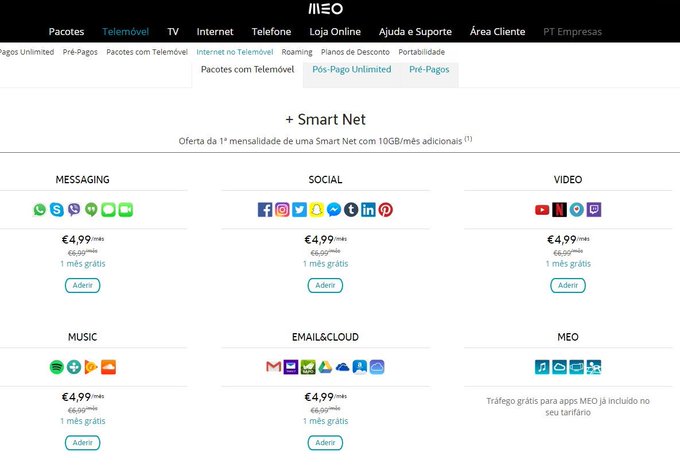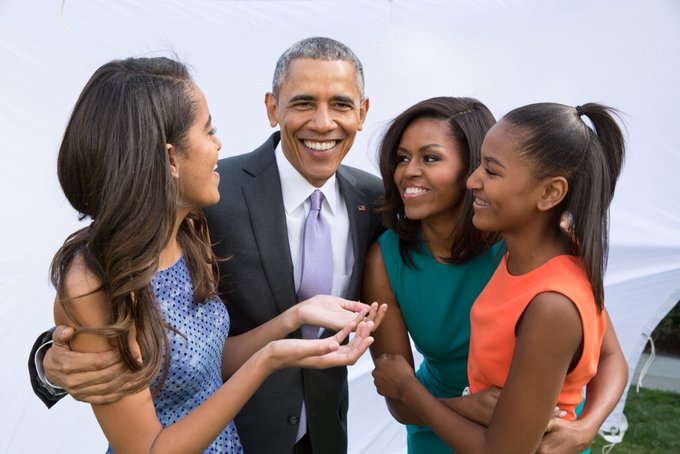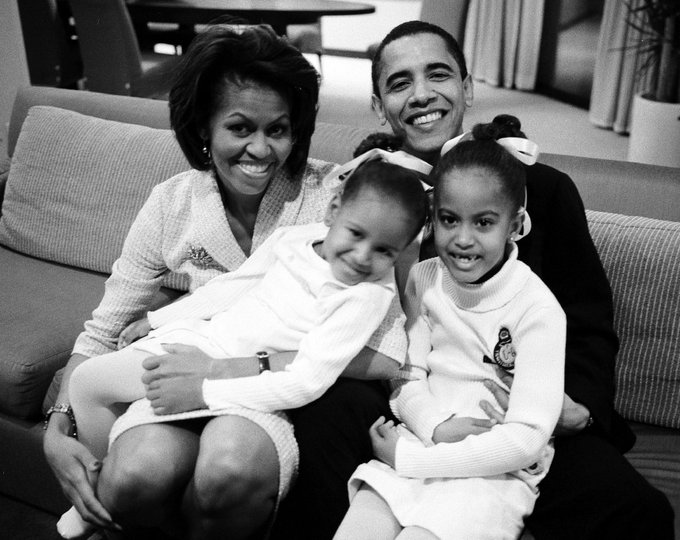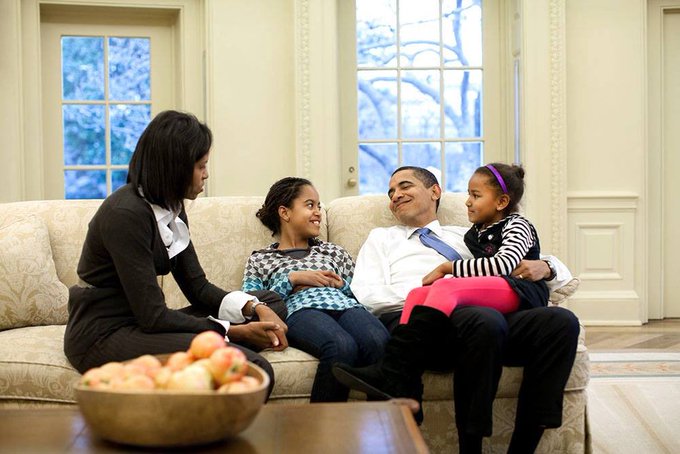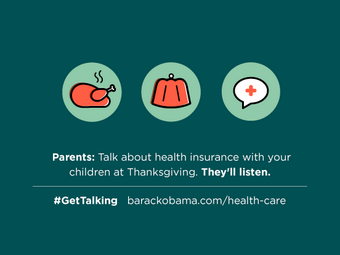M WAQAR..... "A man's ethical behavior should be based effectually on sympathy, education, and social ties; no religious basis is necessary.Man would indeed be in a poor way if he had to be restrained by fear of punishment and hope of reward after death." --Albert Einstein !!! NEWS,ARTICLES,EDITORIALS,MUSIC... Ze chi pe mayeen yum da agha pukhtunistan de.....(Liberal,Progressive,Secular World.)''Secularism is not against religion; it is the message of humanity.'' تل ده وی پثتونستآن
Saturday, November 25, 2017
China - A regional solution needed for South China Sea
By Ling Shengli
US President Donald Trump has returned from his "state visit plus" to China, Japan and South Korea after signing a number of agreements, among them a $253.5 billion trade deal with China as his most publicized achievement. Yet Trump's economic achievements accomplished during the tour stand out more than those made in the field of politics and security.
His remarks regarding the South China Sea received a poor response in Southeast Asia. This shows that countries involved in the South China Sea disputes have their own viewpoints and that although they welcome non-regional countries playing a constructive role, excessive meddling for one's own gains is not appreciated.
The situation in the South China Sea has been relatively stable in recent months, largely due to parties involved in the dispute working hard to prevent the escalation of conflicts. Differences between China and Vietnam, and China and the Philippines make up the majority of the conflicts.
But recently, high-level officials from Beijing and Hanoi have stepped up communication, preventing controversies from snowballing. Since Philippine President Rodrigo Duterte assumed office, Manila's policy toward Beijing has taken a U-turn, with China and the Philippines pursuing win-win cooperation. Overly focusing on the South China Sea will only heighten differences between Beijing and Manila, while looking past them can help bring them on the same page in terms of the economy and security.
China, Vietnam and the Philippines have managed to control their differences regarding South China Sea disputes. In August this year, foreign ministers of China and members of the Association of Southeast Asian Nations (ASEAN) agreed to adopt a framework for a code of conduct (COC) in the South China Sea, bringing the situation into a new phase. It will also serve as an institutional guarantee in easing and resolving disputes in the area. This hard-earned consensus was an outcome of years of struggle and contemplation by all sides.
Nevertheless, this does not mean that disputes can be settled once and for all. Implementation and gradual promotion are still needed. Chinese Foreign Minister Wang Yi has proposed a three-step plan to advance consultation of the COC. During the process, it is necessary to actively push all parties forward to greater fine-tune regulations and fulfill countries' commitments based on consensus, so as to realize a South China Sea community of common security, development and destiny.
Meanwhile, interference by the US, Japan, Australia and other nations, who have the capability to exert influence in the dispute, cannot be left unnoticed.
Given that the Trump administration has been paying increasing attention to the North Korean nuclear crisis and also economic and trade issues in the Asia-Pacific region, Washington's current attention on the South China Sea is somewhat limited.
But the White House will not ignore the issue either; as it can use its leverage to make the dispute a bargaining chip to negotiate with Beijing, yet this wouldn't be easy for Washington.
By interfering in the South China Sea issue, the US is seeking to maintain its dominance in the Asia-Pacific. All other states that claim rights in the area serve as strategic pawns for Washington.
Yet this time, Vietnam and the Philippines have disregarded an offer made by the US to mediate in the South China Sea dispute, showing that their trust in Washington is limited and they are aware that escalating tensions in the waters is not the right approach toward solving the issue.
In fact, providing a solution is much better done without the intervention of the US. The COC negotiation on the South China Sea is good evidence of this.
The US is the most influential non-regional factor in resolving the South China Sea dispute, yet it has been playing a role of a troublemaker. ASEAN nations are now hoping to work with one another to bring the disputes under their control, instead of being directed by the US.
The chairman's statement at the just-concluded ASEAN summit suggested that members are willing to settle the dispute with China peacefully and promote the implementation of the South China Sea COC. Washington should take heed of this change. Its desire to see disorder in the region will not be realized.
Putin signs foreign agent media bill into law
The law labels media outlets as foreign agents if they receive funding from abroad
Russian President Vladimir Putin has signed into law the bill designating media outlets as foreign agents. The document passed by the Russian State Duma (lower house of parliament) on November 15 and endorsed by the upper house, Federation Council, on November 22, was published on the official portal of legal information on Saturday.
The law labels media outlets as foreign agents if they receive funding from abroad. After acquiring this status, these media outlets will be subject to the restrictions and responsibilities, which are currently envisaged for non-governmental organizations (NGO) labeled as foreign agents. They will also face the same responsibility as those NGOs for breaching the legislation.
This measure was a response to the demand of the US Department of Justice to RT America, a US branch of the Russian television company, to register as a foreign agent.
Andrey Klishas, who chairs the upper house’s committee for constitutional legislation and state construction, said the law does not violate constitutional rights. According to the senator, the law does not introduce censorship, but enshrines additional obligations for mass media outlets designated as foreign agents. He stressed that the law does not target Russian media outlets, but only foreign ones.
More:
http://tass.com/politics/977457
Violence Against Women is 'Rooted Deeply in Gender Inequality,' Activist Says
November 25 marks the International Day for the Elimination of Violence against Women. Radio Sputnik talked to a women's rights activist and feminist from Macedonia, Biljana Nastovska, as more and more women across the world come out to report cases of sexual misconduct against them. Biljana Nastovska: The secretary general of the United Nations said that violence against women happens only and because it is fundamentally rooted in the inequalities of the genders. We can see, by statistics, that no country in the world is immune to this problem. Basically, when a woman does not fit within the social understanding of her gender roles, violence against women happens. Seven hundred fifty million girls, for instance, in the world today have been subject to child marriage.
Sputnik: What regions of the world are most specifically affected by this unpleasant social phenomenon and what do you think are the root causes for violence against women?
Biljana Nastovska: In different parts of the world, we are facing different forms of violence. For instance, for Europe, and, let's say, for the Balkans, the most common types of violence are domestic violence, inter-partner violence, violence among young women and men. We are also seeing femicide on the rise now, especially in the Balkans, due to the fact of women somehow entering into different areas of society. For instance, Serbia has been reporting a lot of femicide; in Macedonia we had a new study, we had realized that femicide is affecting women in this country in a big portion: for instance, from 2008 until 2016 we had identified 35 [cases] of femicide, and in Macedonia [there] are only 2 million people. So, can you imagine what is going on? For instance, on the other hand, when it comes to child marriage, Western and Central Africa are most affected. Femicide is also very common in South America.
How come that this problem is still so acute in the 21st century? Or is it because women are coming out more often now?
Biljana Nastovska: I'm [facing] that question as an activist every day. Half of the population is basically discriminated [against]… but there is a light, there is an orange color, as we are saying as activists. You can see that pink march that happened last year in America. It's a milestone for feminist activists, we saw a lot of women coming out and now, when Hollywood has spoken, I think that humanity is going to develop more and more "zero tolerance" towards these kinds of infringements of human rights.
https://sputniknews.com/analysis/201711251059434888-violence-against-women-gender-inequality/
Budweiser Reveals Plan to Brew Beer for Mars
Although we haven’t actually set foot on Mars yet, one beer companyhas us covered when we do.
In March, the brewing company Anheuser-Busch announced their lofty goal to create a beer in space that would eventually be accessible on Mars, in a campaign that sounded more like it belonged in a sci-fi novel.
While the goal seemed a bit far-off, literally, it looks like space beer will be happening a lot sooner than everyone thought.
Working with the International Space Station, Anheuser-Busch is going to create a “microgravity brew” - and it is happening in December.
Clearly eager to get beer in space, Anheuser-Busch has partnered with “CASIS, who manages the International Space Station U.S. National Laboratory, and Space Tango, a payload development company that operates two commercial research facilities within the National Lab.”
As of now, the plan is for SpaceX to transport the goods, 20 barley seeds and other key Budweiser ingredients, to the International Space Station on December 4 during its CRS-13 mission.
Once the barley seeds arrive safely at their temporary extraterrestrial home, they will be put to work.
While floating around in space, two experiments will be conducted with the seeds. The first, to test seed exposure, will consist of letting the barley seeds live on the space station for 30 days to see how they react to their new outer space environment. The second experiment, seed germination, includes watering and feeding the seeds for two weeks to see if they grow as they would on Earth.
The plan is for the barley to stay in orbit for a month before coming down to be analysed, and hopefully, made into space beer.
And before anyone criticizes the necessity of beer in space, retired astronaut Clayton Anderson made an important point. Speaking on its potential importance on an astronaut's psyche, Anderson defended the microgravity brew by stating, “ A successful mission will include many key components, including the need to provide crew members with commodities that remind them of home.”
Net neutrality: why are Americans so worried about it being scrapped?
Alex Hern
Most of the world won’t be affected by the changes, so are they a problem? No, if you are a tech monopoly – but yes if you don’t want a two-tier internet.
Ajit Pai, head of the US telecoms regulator, revealed sweeping changes on Tuesday to overturn rules designed to protect an open internet.
The regulations, put in place by the Obama administration in 2015, enshrined the principle of “net neutrality” in US law. Net neutrality is the idea that internet service providers should not interfere in the information they transmit to consumers, but should instead simply act as “dumb pipes” that treat all uses, from streaming video to sending tweets, interchangeably.
Net neutrality is unpopular with internet service providers (ISPs), who struggle to differentiate themselves in a world where all they can offer are faster speeds or higher bandwidth caps, and who have been leading the push to abandon the regulations in the US.
On the other side of the battle are companies relying on the internet to connect to customers. Their fear is that in an unregulated internet, ISPs may charge customers extra to visit certain websites, demand fees from the sites themselves to be delivered at full-speed, or privilege their own services over those of competitors.
The fear is well-founded. Outside the US, where net neutrality laws are weaker and rarely enforced, ISPs have been experimenting with the sorts of favouritism that a low-regulation environment permits.
In Portugal, mobile carrier MEO offers regular data packages, but it also offers, for €4.99 a month, 10GB “Smart Net” packages. One such package for video provides 10GB of data exclusively for YouTube, Netflix, Periscope and Twitch, while one for messaging bundles six apps including Skype, WhatsApp and FaceTime.
In Portugal, with no net neutrality, internet providers are starting to split the net into packages.
In New Zealand, Vodafone offers a similar service: for a daily, weekly, or monthly fee, users can exempt bundles of apps from their monthly cap. A “Social Pass” offers unlimited Facebook, Instagram, Snapchat and Twitter for NZ$10 for 28 days, while a “Video Pass” gives five streaming services – including Netflix but not YouTube – for $20 a month.
Even British carriers are experimenting. Virgin Mobile doesn’t charge extra for its packages, but does offer free data on three apps – Facebook Messenger, Twitter and WhatsApp – for subscribers. Three’s “Go Binge” plans do similar having “teamed up with Netflix, TVPlayer, Deezer, SoundCloud and Apple Music” to exclude them from data caps.
Two-speed internet
Supporters of net neutrality cite two major concerns about these practices. The first is that breaking the internet down into packages renders pricing confusing and difficult to compare, providing cover for mobile operators and ISPs to increase overall costs and pocket the difference.
The second is more systemic: an exclusive list of apps and services that receive preferential treatment divides the internet into haves and have-nots. Sometimes referred to as a “two-speed internet”, this runs the risk of entrenching incumbents at the top of the field, while making it very hard for startups to grow to the same scale. Consider, for instance, trying to advertise a new video-streaming service to New Zealand’s Vodafone customers. As well as beating Netflix on its own terms, perhaps by offering better programming or a cheaper subscription, the new service would have to deal with the fact that some Vodafone subscribers will get Netflix without affecting their data caps, but streaming from the startup will eat up their limit very quickly.
But if net neutrality is already weak around the rest of the world, without such negative outcomes becoming widespread, why has the US reacted so strongly – and negatively – to the changes domestically? A glance at Reddit, the self-proclaimed front page of the internet, reveals the scale of the response: 16 of the 25 stories on the site’s homepage are about net neutrality, with all but two of them linking to the exact same page. As San Francisco-based, British-born, venture capitalist Benedict Evans noted, the biggest distinction is competition. “When I lived in London I had a choice of a dozen broadband providers. That made net neutrality a much more theoretical issue,” Evans wrote. In the US, much of the population has essentially no choice over who to buy broadband from, with local monopolies enshrined in law and a nationwide duopoly providing access to high-speed connections for three quarters of the nation. That gives ISPs much more power to wield net neutrality in an extractive fashion, forcing customers to pay extra to access their favourite sites at full speed – or forcing companies to pay for access to customers. This back and forth has been going on for over a decade, with the term net neutrality coined in 2003, but in recent years the landscape has changed. The most obvious driver has been the election of a US President whose largest motivation for policy decisions appears to be simply undoing the actions of his predecessor.
But the power dynamics between the large internet firms and ISPs has also shifted, in a way that has lessened the institutional support for net neutrality.
In May 2017 Netflix CEO Reed Hastings, once one of the largest proponents of the principle, noted that it didn’t really matter for the firm anymore. “Neutrality is really important for the Netflix of 10 years ago, and it’s important for society, it’s important for innovation, it’s important for entrepreneurs … It’s not our primary battle at this point.
“[For] other people it is, and that’s an important thing, and we’re supportive through the industry association, but ... we don’t have the special vulnerability to it.”
If an ISP slows down the traffic to a small startup, that startup looks bad. If it slows down the traffic to Netflix, though, it’s the ISP that looks incompetent.
Other internet giants have an even weaker support for the principle. Facebook has actively contributed to the erosion of net neutrality in the developing world, through its Internet.org Free Basics programme. That offers free internet access, but only to a selected list of low-bandwidth websites (Facebook, naturally, is included). For the company that wants to ensure that all human communication is piped through its channels, whether or not other websites have good connections isn’t a great concern.
With the US regulations scrapped, the door is open for service providers to begin experimenting with their offerings. The new normal may go no further than those packages offered in the UK or New Zealand, or it may finally realise the nightmares the campaigners have been warning about all this time.
The fight now moves from the regulatory sector to the market: if ISPs try to introduce a two-tier internet, will consumers vote with their feet? Will they have the freedom to even do so?
HOW THE OBAMAS CELEBRATE THANKSGIVING: A BRIEF HISTORY OF HOLIDAY WISHES FROM BARACK, MICHELLE AND THE GIRLS
BY STAV ZIV
The Obamas may no longer inhabit the White House, but they are still wishing Americans everywhere a happy Thanksgiving “full of joy and gratitude.” Former President Barack Obama tweeted the greetings Thursday morning with a picture of himself with Michelle, Malia and Sasha in a warm family embrace with smiles all around.
From the Obama family to yours, we wish you a Happy Thanksgiving full of joy and gratitude.
It’s an all-grown-up version of a photograph Obama posted for Thanksgiving five years ago, about two weeks after he was elected for a second term. That image, in black and white, was a throwback to a time when the two first daughters were small enough to sit on their parents’ laps, with bows in their hair and Malia showing off her missing teeth in a wide grin.
From this family to yours, happy Thanksgiving.
In 2016, shortly after the most recent presidential election that saw Donald Trump chosen as Obama’s successor, the first lady shared another old family photograph for Thanksgiving. “Today and every day we have a lot to be thankful for. From our family to yours - Happy Thanksgiving,” she wrote, according to her archived FLOTUS account.
Today and every day we have a lot to be thankful for. From our family to yours - Happy Thanksgiving.
The 44th president began sharing Thanksgiving wishes from the Obamas' on Twitter during his first year in office. “From my family to yours — Happy Thanksgiving,” he wrote in 2009. The following year, he wrote: “As Americans gather for Thanksgiving, let us rejoice in the abundance that graces our tables and in the loved ones who enrich our lives.”
As Americans gather for Thanksgiving, let us rejoice in the abundance that graces our tables and in the loved ones who enrich our lives.
In 2011, he posed a question: “We've accomplished a lot together over the past three years. This Thanksgiving, what are you most thankful for?” The tweet linked to an Organizing for Action survey that asked for stories of thanks. “From ‘Don't Ask, Don't Tell’ to ending the war in Iraq, what progress from the last three years are you most thankful for?”
We've accomplished a lot together over the past three years. This Thanksgiving, what are you most thankful for? http://OFA.BO/vx1dZH
Two years later, in 2013, he encouraged parents to talk to take the opportunity to talk to their children about health insurance over Thanksgiving.
Today and every day we have a lot to be thankful for. From our family to yours - Happy Thanksgiving.
The 44th president began sharing Thanksgiving wishes from the Obamas' on Twitter during his first year in office. “From my family to yours — Happy Thanksgiving,” he wrote in 2009. The following year, he wrote: “As Americans gather for Thanksgiving, let us rejoice in the abundance that graces our tables and in the loved ones who enrich our lives.”
As Americans gather for Thanksgiving, let us rejoice in the abundance that graces our tables and in the loved ones who enrich our lives.
In 2011, he posed a question: “We've accomplished a lot together over the past three years. This Thanksgiving, what are you most thankful for?” The tweet linked to an Organizing for Action survey that asked for stories of thanks. “From ‘Don't Ask, Don't Tell’ to ending the war in Iraq, what progress from the last three years are you most thankful for?”
We've accomplished a lot together over the past three years. This Thanksgiving, what are you most thankful for? http://OFA.BO/vx1dZH
Two years later, in 2013, he encouraged parents to talk to take the opportunity to talk to their children about health insurance over Thanksgiving.
Parents: Turkey isn't the only thing to talk about at Thanksgiving this year. #GetTalking
Starting that same year, the first lady tweeted about her gratitude to immigration reform advocates and military service members and their families. Her husband followed suit in his 2015 wishes.
As families begin to gather for Thanksgiving, I’m thinking of the brave #Fast4Families immigration reform advocates. We're with you. -mo
This #Thanksgiving, let's give thanks for all our brave men & women in uniform and their families. We're so grateful for your sacrifice. -mo
As we celebrate #Thanksgiving, let's give thanks to our men and women in uniform serving our country far from their homes and families. –mo
Happy Thanksgiving, everyone! Today, we give thanks for all of our loved ones and the brave men and women in uniform who serve our country.
In his last Thanksgiving in office, perhaps reflecting on the final days of his presidency, Barack Obama wrote that “this Thanksgiving, we give thanks for our blessings, and work to fulfill the timeless responsibility we have as Americans to serve others.”
The Old Soldiers Home in DC has cared for our nation's veterans for 165 years. I was honored to be a small part of that mission. pic.twitter.com/tDnqOGHgAB
This Thanksgiving, we give thanks for our blessings, and work to fulfill the timeless responsibility we have as Americans to serve others.
There was surely one thing missing from the Obamas' post-White House Thanksgiving: the annual turkey pardon. Though Malia and Sasha may have been grateful for it, one has to wonder if their father missed what is arguably the silliest presidential tradition, one where he could unleash his "corny-copia of dad jokes about turkeys."
But who knows? Maybe the tradition has continued. As Obama said at last year's ceremony: "What I haven't told them yet is we are going to do this every year from now on. No cameras, just us, every year. No way I'm cutting this habit cold turkey."






